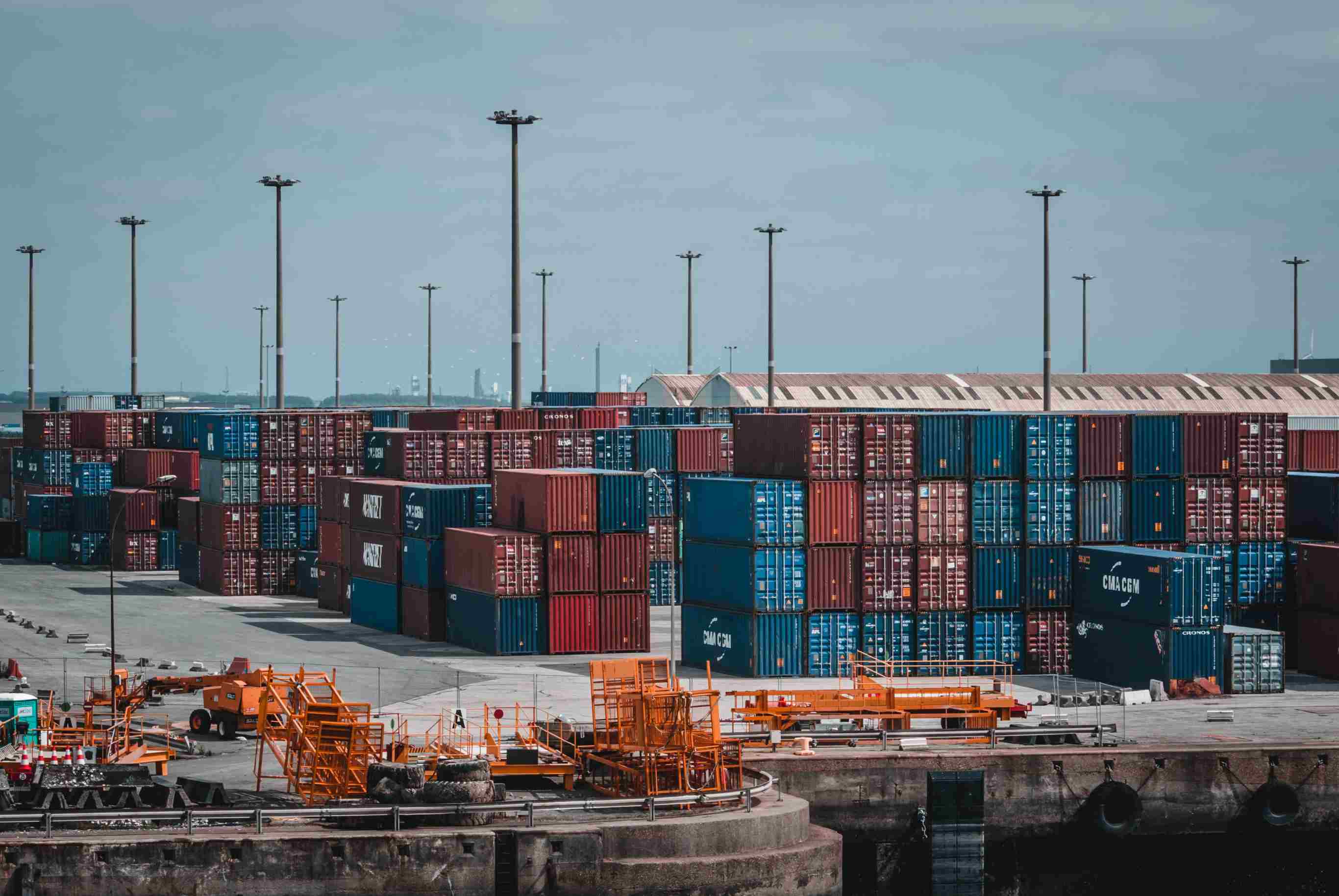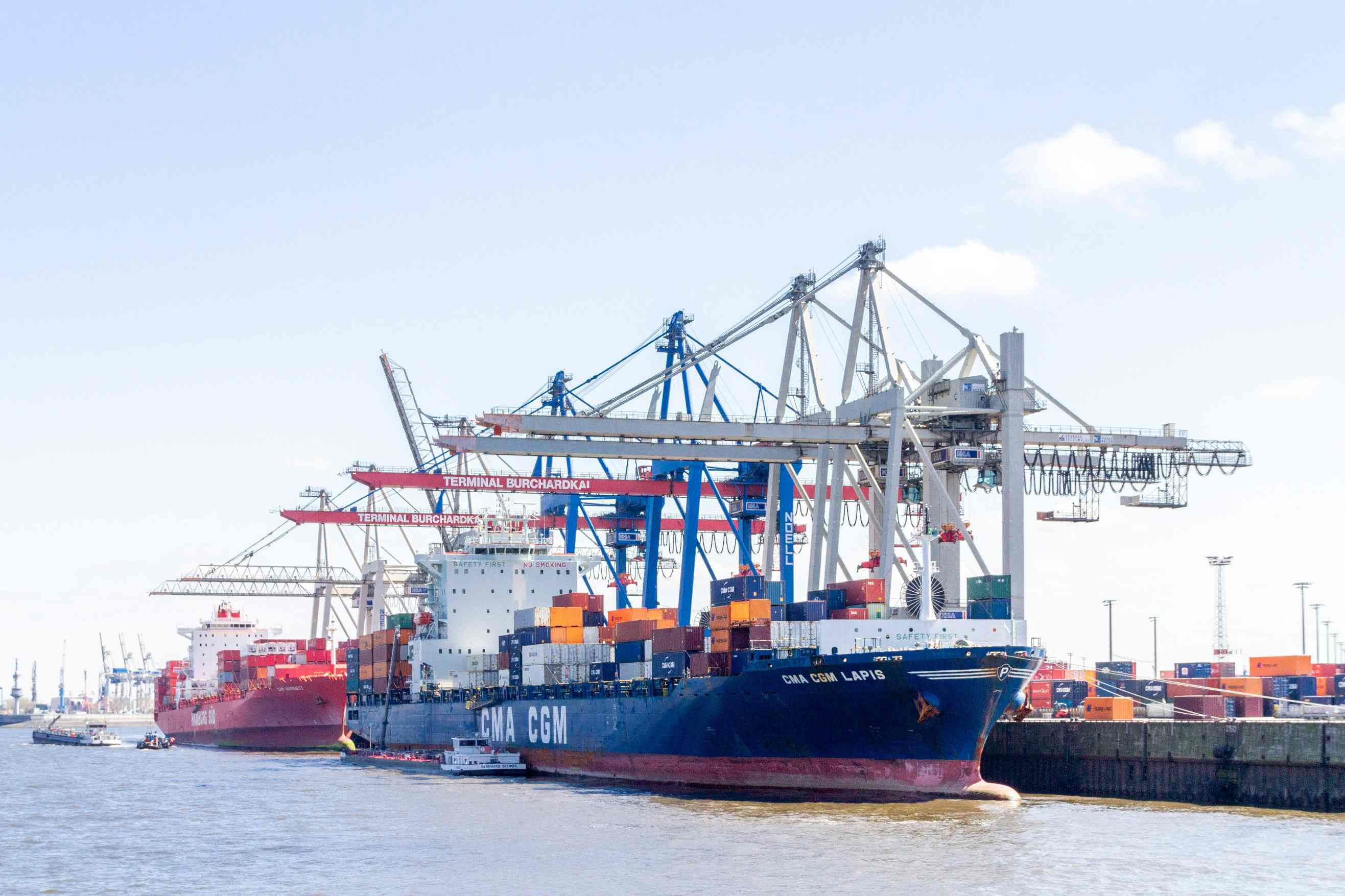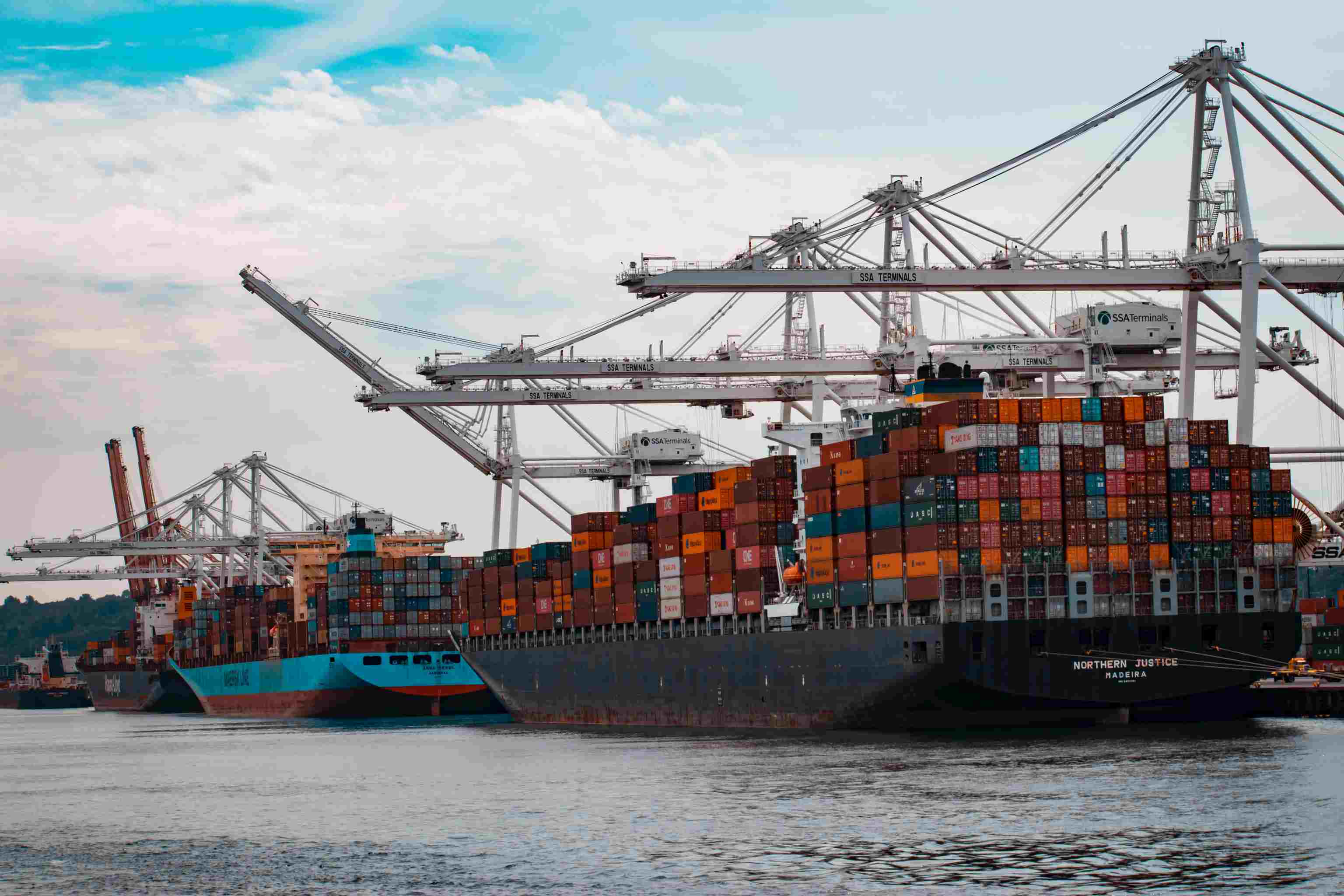Logistics outsourcing
Matters needing attention in the implementation of logistics outsourcing
After investigating and assessing the status of third-party logistics service providers, the company decides to implement logistics outsourcing. In order to prevent logistics outsourcing from flowing or failing, it is necessary to pay attention to the following points:container shipping cost
1. Develop a specific, detailed and operable work scope. The scope of work is a detailed list of logistics service requirements. It clearly defines the details of the service link, operation method, operation time, and service cost. The establishment of the work scope is the most important part of logistics outsourcing. It determines the success or failure of logistics outsourcing. One of the key elements.
2. Assist third-party logistics service providers to know the company. Regarding the personnel of the third-party logistics service provider as internal personnel, it is generally necessary to share the company's business plan with the third-party logistics service provider to let him understand the company's goals and tasks, because for a person who knows nothing about the company You can hardly ask him to perform well.
3. Establish a conflict resolution plan. The cooperation relationship with third-party logistics service providers is not always smooth. In fact, if each other's views can be properly expressed, the company will benefit a lot, so in order to avoid conflicts, you should plan for conflicts beforehand. The solution of how the two parties dealt with when it happened, once one party's needs could not be met, they could be cited and used to improve their relationship.
4. Make constant adjustments. The market is the battlefield, and the situation is ever-changing. Therefore, after outsourcing, you still have to inspect and supervise in person, because you can only see the problem in person, and then you can correct it in time.
5. Stay flexible. The logistics outsourcing project should be gradually expanded. Pay attention to the breadth of services that third-party logistics service providers can provide to maintain a certain flexibility and provide the company with the best service in the most flexible way.
Risks and Countermeasures of Enterprise Logistics Outsourcing
Business outsourcing is becoming an important strategy for corporate development. Many companies outsource part of their business, emphasizing their main efforts on their key business and giving full play to their advantages. At the same time, they establish strategic cooperative relationships with suitable companies worldwide. The core business of China and Africa is completed by cooperative enterprises, which is called outsourcing. Many management experts agree that companies should focus on their areas of expertise and tightly grasp their core competitiveness. As for the tasks other than the core business, they will be left to other companies, which can be accomplished through business outsourcing. Mao Shijia, General Manager of China Shipping Group Logistics Co., Ltd. believes that for developed countries, outsourcing is the need to integrate global resources and obtain comparative cost advantages; for developing countries, outsourcing is the need to accept challenges and seize opportunities.
Outsourcing can not only play an important role in the transformation of the enterprise, but also allow the company to focus on its core business, enhance the core competitiveness of the enterprise, expand the scale of operations, and open up new markets. Therefore, manufacturing companies should further reduce non-core business and affairs, outsource non-core business or affairs to professional companies that are good at this work, make themselves more focused on the development of core business, and make use of specialized division of labor. Get more professional and flexible services at a lower price.
First, the causes of business outsourcing and common forms of outsourcing
The causes of business outsourcing:
1. Strengthen the core competitiveness of enterprises. The purpose of outsourcing is to keep the company lean and concentrate on strengthening its core capabilities.
2. Utilize external resources of the company. By outsourcing the business that they are not good at to a professional company, an enterprise can make use of external resources to make up for its lack of resources and capabilities.
3. Reduce and control costs and save money. Professional companies have the technology and knowledge to complete a business more efficiently and cheaply than their own, so they can achieve economies of scale and are willing to profit in this way. Therefore, enterprises can avoid huge investment in equipment, technology and research and development through outward resource allocation.
4. Share risk. The company's own resources and capabilities are limited. Through outward allocation of resources, cooperation with external companies, and risk sharing, enterprises can become more flexible and more able to adapt to changing external environments.
Common business outsourcing forms: logistics outsourcing, marketing outsourcing, research and development outsourcing, document service outsourcing, human resource management outsourcing, accounts receivable outsourcing, information system outsourcing, etc.
Second, the advantages and potential risks of logistics outsourcing
At present, the most potential form of business outsourcing is logistics outsourcing, that is, to consolidate resources, save management costs, and enhance core competitiveness, companies entrust their logistics operations to professional logistics companies (third-party logistics) in a contractual manner. . Logistics outsourcing is a long-term, strategic, interpenetrating, and mutually beneficial business commission and contract execution method.
一 (I) Advantages of logistics outsourcing
1. Enable enterprises to concentrate limited resources on their main business development. The outsourcing of logistics business to third-party logistics companies can enable enterprises to optimize the allocation of resources, reduce the investment in vehicles, warehouses and manpower for logistics operations, and focus limited manpower and financial resources on core business.
2. Save costs and increase profits for enterprises. The third-party logistics companies engaged in logistics outsourcing operations make use of the professional advantages and cost advantages of large-scale operations to achieve cost savings by improving the utilization of capabilities in each link, so that the company can benefit from the separation of costs.
3. To enable enterprises to accelerate the turnover of goods, reduce inventory and reduce operating risks. Third-party logistics service providers rely on carefully planned logistics plans and timely delivery methods to maximize the inventory merchandise turnover, reduce inventory, and reduce business risks for enterprises.
4. Improve corporate image. Third-party logistics providers use complete facilities and well-trained employees to achieve complete control over the entire supply chain, help customers improve services, and establish their own brand image. At the same time, companies can also use their brand image to enhance their own corporate image.
5. Reduce management difficulty and improve management efficiency. Logistics business outsourcing can not only enable enterprises to enjoy the efficiency and benefits brought by professional management, but also transform internal management activities into external contractual relationships, and turn management responsibilities undertaken internally into legal responsibilities undertaken externally, which is beneficial to simplifying management.
(II) Potential risks of logistics outsourcing
Logistics outsourcing has been adopted by many enterprises, especially foreign-funded enterprises and multinational companies, and has developed rapidly, but there are still some problems in the actual operation of logistics outsourcing. Therefore, before implementing logistics outsourcing as a form of logistics, enterprises need to make a detailed analysis of the potential risks of logistics outsourcing in order to formulate coping strategies and effectively control the risks.
The potential risks of enterprise logistics outsourcing mainly include the following aspects:
1. Insufficient outsourcing control. Outsourcing often causes companies to lose control of some products or services, which increases the uncertainty of their normal production. In the process of outsourcing, enterprises may affect the development of the entire business due to the loss of control over outsourcing.
2. Increase the risk of outsourcing dependence. Relying on a third-party logistics service provider for a long time has potential benefits for the company's capital investment and efficiency improvement, but at the same time it will make the third-party logistics service provider breed complacency and make it difficult for the company to control.
3. Internal employee resistance. Enterprise logistics outsourcing often affects the company's internal business processes and requires the reorganization of the company's internal business processes. This process is likely to affect all employees and is negatively affected by the company's internal staff resistance and normal production operations.
4. Reduce user satisfaction. Enterprises rely too much on third-party logistics service providers, and they cannot control or influence them, so that they cannot obtain the required user-required information, which affects their product improvement. In the long run, user satisfaction is reduced due to the out-of-control of logistics activities, which may hinder the connection between core business and logistics activities.
5. Business interests are damaged. The long-term outsourcing of logistics activities will make the third-party logistics service providers think that the company lacks expertise, so it will raise the price of logistics services or provide poor logistics services, which will cause the company to suffer losses.
In summary, although logistics outsourcing has advantages such as cost savings, it also hides potential risks. This is also one of the reasons why some companies give up logistics outsourcing and choose to run their own logistics. For example, there is a company specializing in third-party logistics in Kunming, and its largest customer is a barrel water production plant. After a period of cooperation between the two companies, the barreled water plant set up its own water delivery system. Why is there a professional third-party logistics company that can provide good and cheap services, and barrel water plants still have to ask for help? The new general manager of the original barreled water plant was very worried about the outsourcing of the water delivery business. He believed that only one company in Kunming City was engaged in the related distribution of third parties. Will be greatly affected. In the company's operations, it is very rational to sacrifice some profits for safety, and the CEO's worry is not unreasonable.
It can be seen that enterprises need to make logistics decisions: whether logistics activities rely entirely on third-party logistics service providers to bear some risks, or to train some technical experts themselves to prevent related risks.
Ⅲ.Effective strategies for enterprises to exercise logistics outsourcing
With the promotion of logistics outsourcing practices, some companies have achieved good results, but some have not achieved the expected results. Therefore, companies must be cautious when choosing logistics outsourcing, while considering the advantages of logistics outsourcing, they must also pay attention to their potential risks, make out-of-logistic decisions from a systematic and long-term perspective, and adopt certain countermeasures to prevent potential changes. Kind of risk.
1. Identify the core competitiveness of the enterprise. Outsourcing itself is not a corporate development strategy. It is only a way to implement corporate strategy. Enterprises should determine whether there are competent and alternative logistics providers in the industry. Otherwise, the implementation of logistics outsourcing will not only be unsuccessful, but will also lead to Here comes a series of questions. Therefore, enterprises should analyze the status of internal logistics in depth, and explore whether logistics is a company's core competence, and analyze whether logistics can bring external strategic economic benefits to the company. Only when the company has suitable partners, the internal management of the company also recognizes The importance of outsourcing and clear preparations for outsourcing can determine whether to implement outsourcing.
2. Selection of outsourcing partners, ie third-party logistics companies. An important issue in the decision of logistics outsourcing is the question of whom to outsource, that is, the selection of outsourcing partners. First of all, it is necessary to investigate, analyze, evaluate, and investigate the management status, strategic orientation, information technology support capabilities, plasticity and compatibility of the external logistics providers, their own plasticity and compatibility, and industry operation experience. Cost status, evaluation of its long-term development ability, evaluation of its credibility, etc. Especially for the commitments and quotations of logistics providers, companies must carefully analyze and measure. The quotation should be determined based on the logistics provider's own cost, not the market price. The quotation is not just a total, but should include the cost details of each operation. The commitment to logistics outsourcing, especially for projects related to government policies or logistics supplier strategies, must come from the top management of the logistics supplier to avoid inconsistent understanding of relevant terms during the contract implementation process. Based on the evaluation, the potential multiple logistics outsourcing partners are compared, and the outsourcing partners that are most suitable for the needs of the enterprise are selected from them.
3. Control of logistics outsourcing activities. Monitoring and controlling outsourcing activities is an important guarantee for the smooth implementation of outsourcing. Even if an enterprise signs an agreement with a third-party logistics provider, it should monitor the performance of the third-party logistics provider and provide them with the required business information. Enterprises and third-party logistics providers should pay attention to mutual communication and jointly develop operational guidelines. The company cannot think that the business is outsourced, and everything is contracted by the other party. It is entirely a unilateral job of the logistics provider. Instead, it should work with a third-party logistics provider to formulate logistics operations procedures, determine information channels, and compile operational guidelines for reference by both parties. The guidelines can make relevant personnel of both parties keep pace with each other in the operation process, and can also provide standards and basis for enterprises to check whether the logistics operations of the other party meet the requirements. Therefore, enterprises should establish a control mechanism for logistics outsourcing, regularly check the performance of outsourcing partners, and formulate standards to evaluate their performance.
4. Adjustment of the internal organizational structure of the enterprise. Enterprise logistics outsourcing may be constrained by the company's internal operating processes and employees' resistance. Therefore, the adjustment of the internal organizational structure of the company mainly focuses on the following aspects: how to adjust business processes on the basis of seamless connection, and perform functional changes; Continuous and effective monitoring of outsourced logistics functions; whether the corporate culture encourages innovation and change; and the attitude of corporate leaders and employees to change. From a strategic perspective, we look at logistics outsourcing, strive to obtain the best partners, and build a sound management system around this partnership, so as to achieve seamless connection and achieve the success of outsourcing strategies.
5. Consolidate cooperative relations based on the principle of "win-win". The service capabilities of logistics providers to enterprises and their customers depend on the performance of the company's own work. Outsourcing means that the interests of both parties are tied together rather than independent. A good partnership will benefit both parties. Any The bad performance of one party will benefit both parties, and the bad performance of any party will hurt both parties. When choosing a logistics supplier, it is necessary to change the existing point of view, that is, it only focuses on the improvement of the core competitiveness of the enterprise, and ignores the interests of the logistics supplier. Enterprises should treat logistics outsourcing with a long-term strategic idea, and through outsourcing Not only to maximize the company's own interests, but also conducive to the sustainable and stable development of logistics providers, to achieve a win-win situation of supply and demand. Therefore, mutual trust between supply and demand and fulfillment of commitments are key factors in establishing a good outsourcing cooperation relationship.





